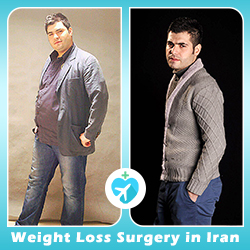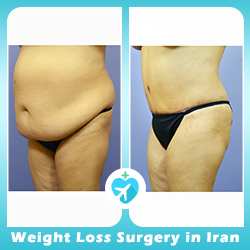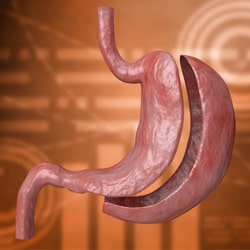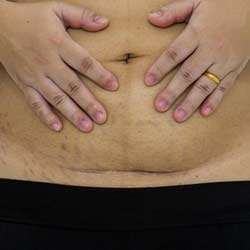Do you have a large amount of excess weight and have tried all types of diets and exercises, without success? If so, you are a good candidate for one of the most famous bariatric surgeries, i.e. gastric bypass surgery.
In gross, this surgery divides both the stomach and the small intestine into two parts. The upper and smaller part of the stomach in attached directly to the lower part of the small intestine, bypassing the lower part of the stomach and the upper part of the small intestine.
In this article, we collected the most frequently asked questions about gastric bypass surgery to help you understand gastric bypass surgery more.
Should I have gastric bypass surgery?
If you are suffering from obesity and want to get rid of excess weight fast, this surgery reduces 70% of your extra weight within a year, in addition to reducing the threat of several diseases on your life, including high blood pressure, type 2 diabetes, stroke, infertility, high cholesterol and sleep apnea.
Do I have to stop smoking before or after gastric bypass surgery?
Smoking may increase your chances of serious complications after surgery, so you should avoid smoking for several weeks before surgery and after surgery.
How can I get rid of excess skin after gastric bypass surgery?
When you lose weight, your skin may sag and droop. It’s important to consult a skilled surgeon to assess your condition. To solve the problem of excess skin in the entire body, the condition may require more than one plastic surgery procedure. However, you may need to wait at least 18 months after gastric bypass surgery before undergoing plastic surgery.
How can I reduce my weight gain after gastric bypass surgery?
It is important to keep your body hydrated, exercise and have a healthy lifestyle. You should consult your surgeon to see if you need a second weight loss surgery.
What instructions should be followed before gastric bypass surgery?
Your doctor may ask you to stop taking aspirin and other anti-inflammatory medications. Don’t take blood thinners before the surgery. You should also quit smoking and drinking alcohol for two weeks before the operation and at least two weeks afterward.
You should drink clear liquids for 24 to 48 hours before the operation. You should also reduce your weight and your intake of carbohydrates and saturated fats to have a safe surgery.
What are the complications of gastric bypass surgery?
People who have undergone bariatric surgery may suffer from some complications such as infection, blood clots, stomach ulcers, gallstones, and nutrient deficiencies.
What foods should I eat after gastric bypass surgery?
In your diet, you will depend on clear fluids in the first days, and then you will gradually start eating soft foods and then solid foods. You must be in full contact with a nutritionist, and you may need supplements.
Also read: What to eat after weight loss surgery?
How much weight will I lose after gastric bypass surgery?
In general, patients lose between 60% and 80% of their excess weight. But they must continue to follow a healthy diet, otherwise, they will gain weight again.
What are the advantages of gastric bypass?
- The amount of weight loss after gastric bypass surgery is much greater and faster than that in any other bariatric surgery.
- An external device is not placed inside the body.
- It helps to cure cases of type 2 diabetes and high blood pressure or at least improve the condition of patients.
- Candidates for surgery range from 18 to 70 years.
- If it is performed using laparoscopy, it will not cause excess pain, and scarring will be minimal.
What are the disadvantages of gastric bypass surgery?
- Its recovery time is longer than other operations’ because the digestive system needs time to get used to the new state.
- The constant need for medication supplements because gastric bypass surgery reduces the absorption of nutrients and vitamins.
- You may experience vomiting and diarrhea.
- Complications include bleeding, infection, and blockage.
Is gastric bypass surgery safe?
Gastric bypass surgery, like any other surgery, has some potential risks and complications, but the risks caused by obesity are much greater than the risks of the surgery. Gastric bypass surgery significantly improves weight-related health conditions such as type 2 diabetes, high blood pressure, and cardiovascular diseases. The key point is to choose a skilled surgeon with high experience, as this reduces the possibility of complications after and during surgery.
Is gastric bypass surgery reversible?
No, gastric bypass surgery is not reversible.
What is the difference between traditional gastric bypass surgery and laparoscopic gastric bypass surgery?
- Conventional surgery requires a large incision while laparoscopic surgery requires only small incisions to insert the surgical instruments.
- Conventional surgery can leave more scars than laparoscopic surgery.
- The healing period of conventional surgery is longer than the laparoscopic surgery’s, although this is also depends on the patient’s health condition and the post-operative care.
- In the conventional surgery, postoperative pain is greater than in laparoscopic surgery.
Is gastric bypass surgery painful?
During the procedure, you will be under general anesthesia, so you will not feel pain. But after the anesthesia effect has disappeared, you will feel pain, so your doctor will prescribe medications to relieve pain.
How gastric bypass surgery stimulates weight loss?
Gastric bypass surgery stimulates weight loss in two ways:
- Restriction: The amount of food to be eaten is controlled because the stomach has become a small pocket.
- Malabsorption: because most of the stomach and a section of the small intestine have been bypassed in gastric bypass surgery, absorption of food decreases.
Is gastric bypass surgery permanent?
It is possible for the stomach to stretch and return to its previous size if you don’t follow the dietary instructions given by your doctor.
What instructions should be followed after gastric bypass surgery?
After gastric bypass surgery, you will remain in the hospital for two to three days. Full recovery may take up to five weeks, depending on your health, weight, and age.
On the first day, you will be prohibited from eating. On the next day, the doctor will ask you to walk slowly. It is necessary to chew the food well before swallowing it. Eat a small amount of food at each meal, because your stomach will be small. Don’t drink while eating to avoid vomiting.
You should drink six to eight glasses of water a day and you should walk daily. In addition to taking supplements prescribed by your doctor, you should avoid lifting objects weighing more than10 kg and intense activities.
By following these instructions, you will pass the recovery phase easily.
What is mini gastric bypass surgery?
Mini gastric bypass surgery creates a larger pocket than regular gastric bypass surgery. This surgery is done by creating a single link with the small intestine; it does not need as many connections as in the regular gastric bypass surgery. Furthermore, the surgery takes less time and its results are good.
If you have any other questions about gastric bypass surgery, feel free to contact us for a free consultations. Our consultants at AriaMedTour are prepared to assist you with anything related to gastric bypass or other types of bariatric surgery.












